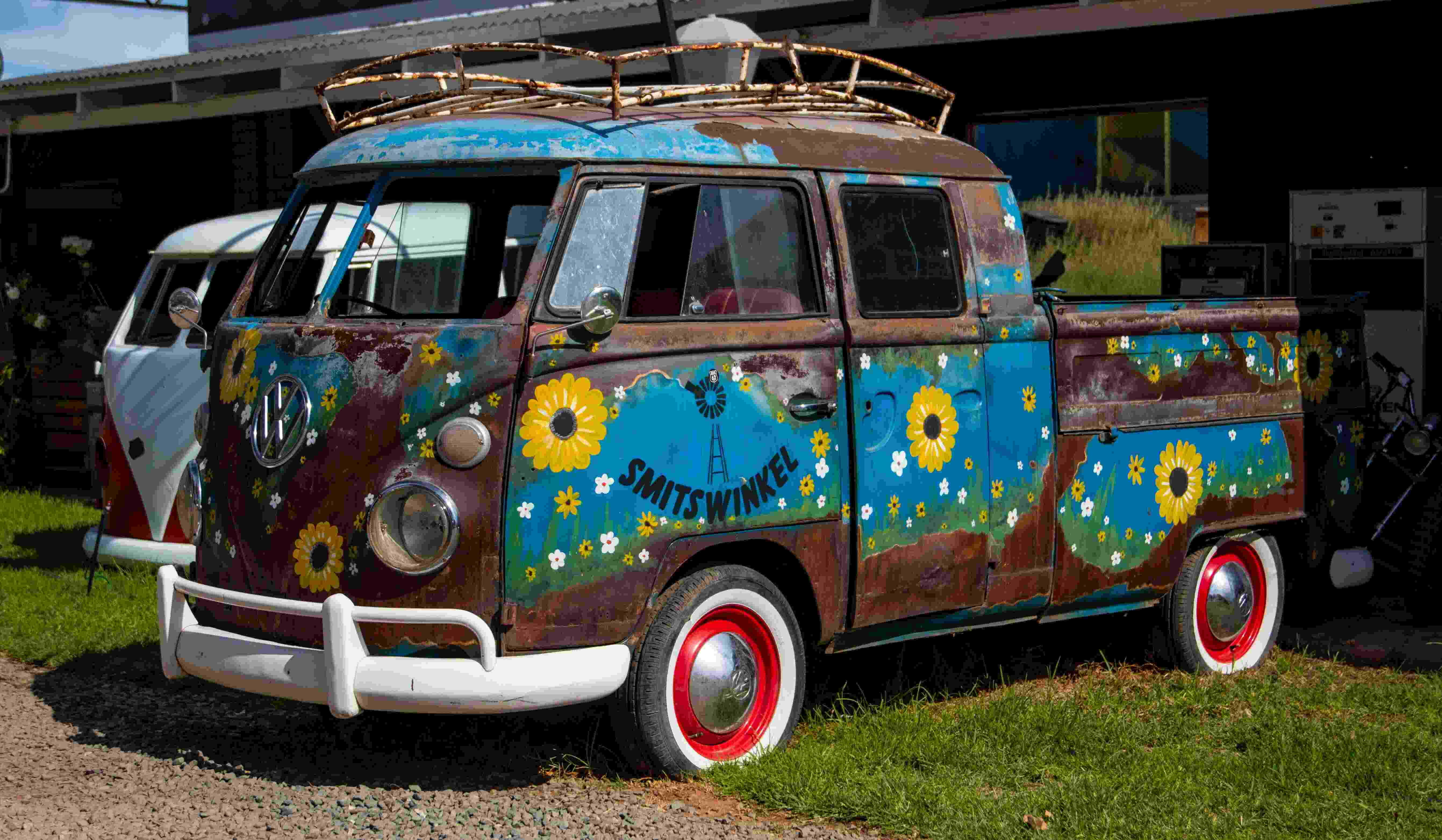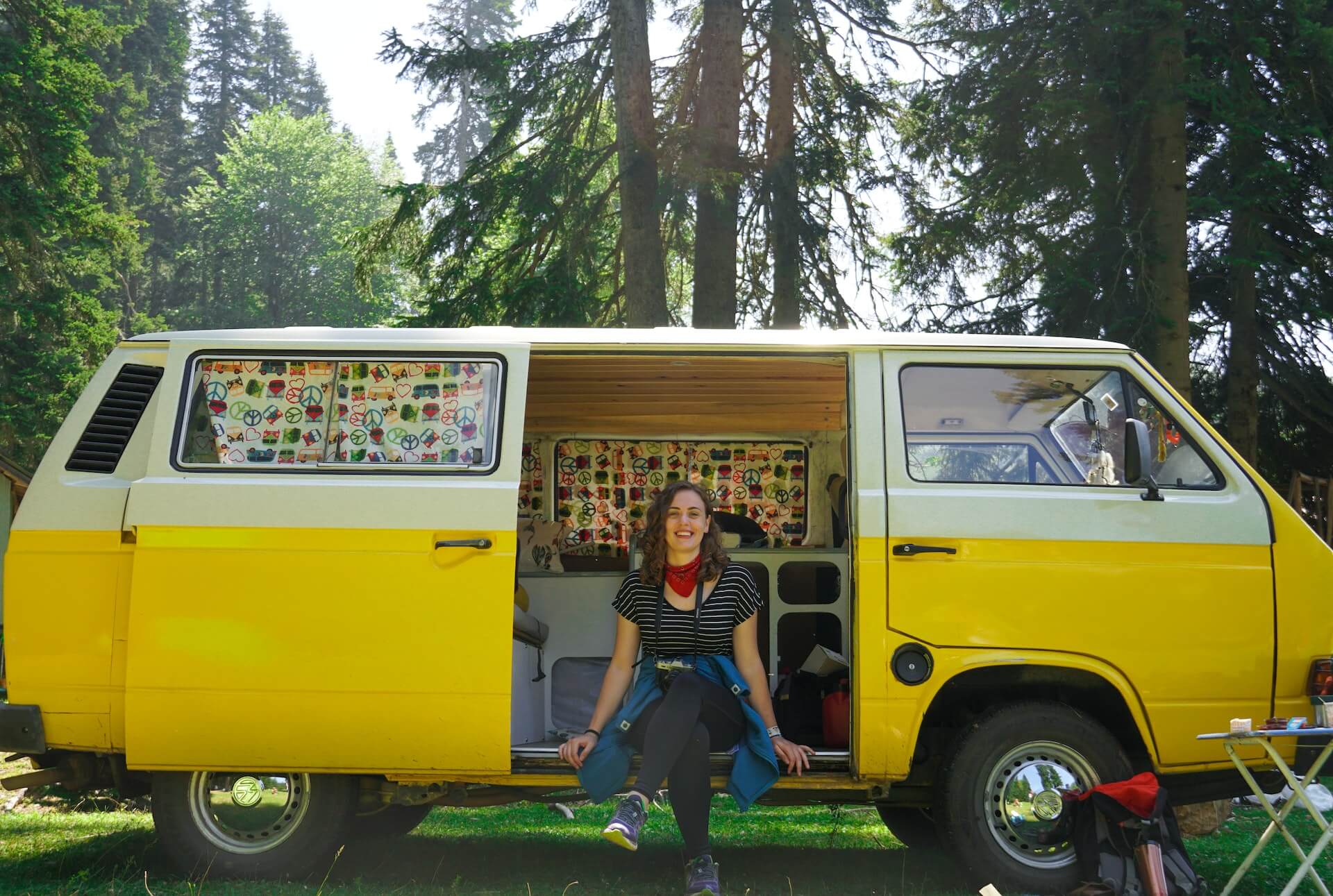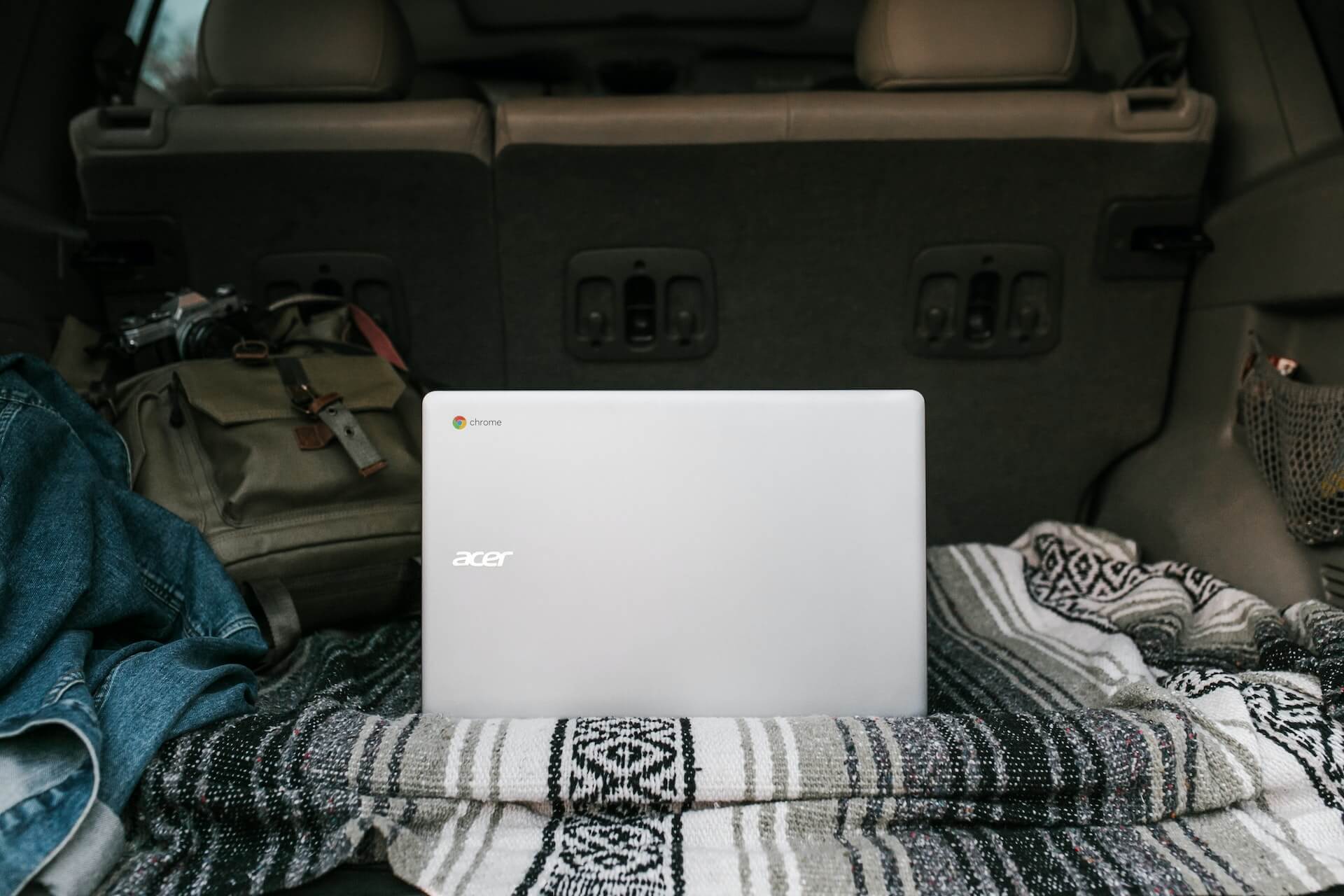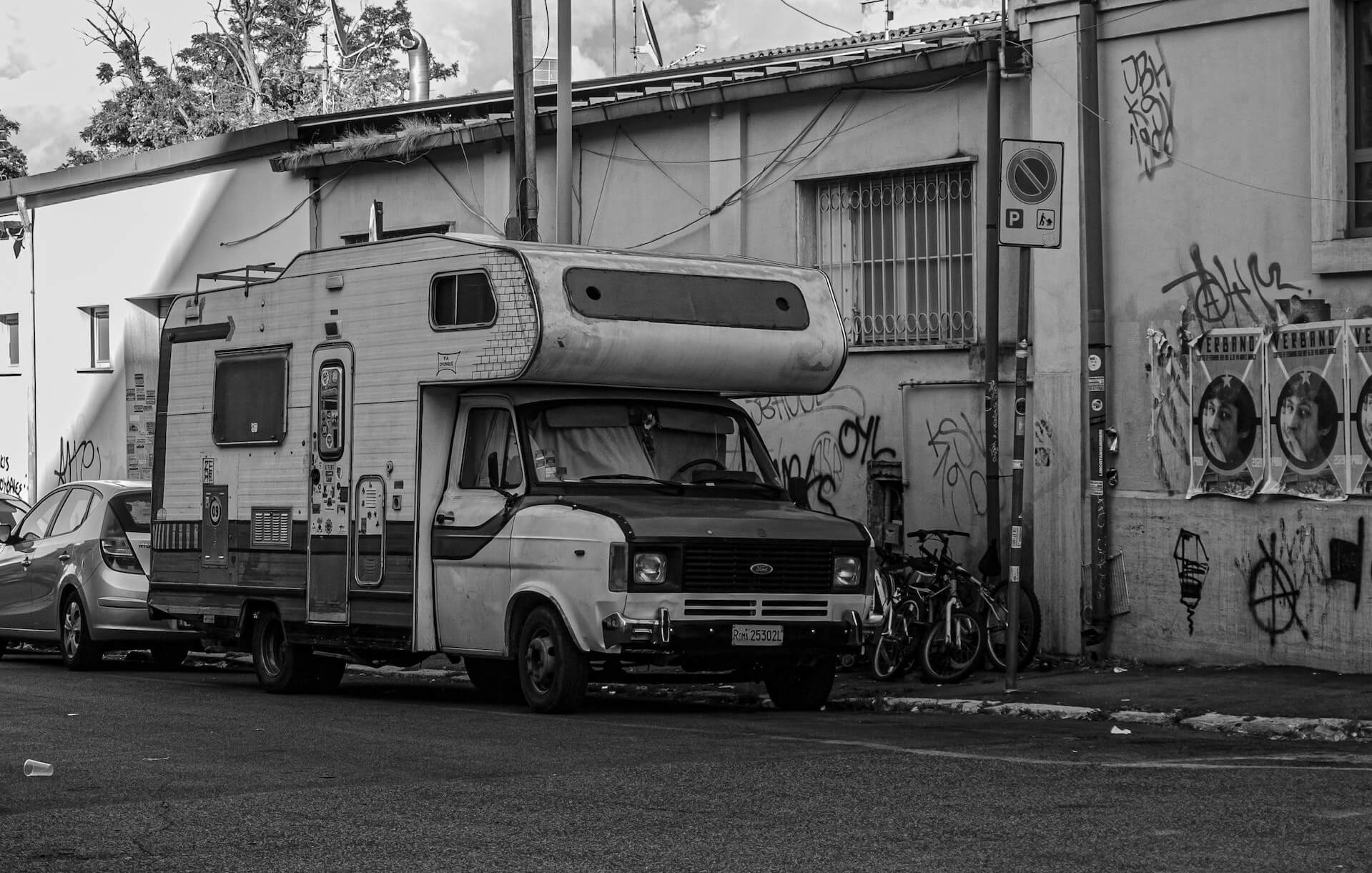Van Life 101: The 9 Biggest Pitfalls [Don’t Make These!]
![Van Life 101: The 9 Biggest Pitfalls [Don’t Make These!]](https://images.unsplash.com/photo-1512075735503-c265d3d40579?crop=entropy&cs=tinysrgb&fit=max&fm=jpg&ixid=MnwxMTc3M3wwfDF8c2VhcmNofDM1fHxDYW1wZXIlMjB2YW58ZW58MHx8fHwxNjc5MTU4NzM3&ixlib=rb-4.0.3&q=80&w=1200)
Yes, van life is totally rad…that’s why you’re here, right?! But if you’re dreaming about joining the nomad ranks, there are some important van life 101 mistakes that you MUST be aware of.
I live in a car myself, and might be moving up into a camper van one day in the future, so I know this topic all too well.
If you want your adventure on wheels to be as smooth as possible (no pun intended), then avoid the following pitfalls at all costs!
Mistake #1: Choosing the Wrong Van for Van Life 101

Choosing the right van for this lifestyle is crucial. Choose the wrong one and you might end up miserable.
While sprinter vans and Ford Transits are popular choices, they can be expensive to purchase and maintain. A cargo van or Chevy Express may be a more affordable option, but they may not have the living space that some people desire.
It's important to consider the size, layout, and features of the van before making a purchase. Do you need the ability to fit a portable toilet? Is MPG performance a factor? Do you prefer a van that’s stripped bare down to the walls, or can you make do with having to remove inside items (seats, etc.) before you begin re-doing it?
These questions - and many more - must be answered before purchasing any van.
I’ve seen so many nomads buy a vehicle only to regret their choice after time goes by. Having to sell a van and purchase another one is a stressful, time-consuming experience. Much better to get it right from the beginning.
Mistake #2: Not Considering the Costs of Living in a Van

Van life can be a significantly more affordable way to live, but it's still important to factor in your monthly cost of living expenses.
While some expenses may be lower (or even non-existent), such as rent and utilities, other costs like gas, vehicle maintenance & toll usage will likely increase.
Additionally, some van dwellers may need to pay for a gym membership, an automobile loan, emergency roadside assistance plans, etc.
It’s critical that you create a list of every single expense - no matter how small - so you can find out what your monthly nut will be. This amount is the bare bones minimum you’ll need to survive.
One of the keys to success in this lifestyle is having a very tight budget, and sticking to it as closely as possible.
Some expenses - like fuel costs - might fluctuate every month. In cases like these, you should try to come up with a close ballpark number based on how much you travel and other factors. Then, leave room in your budget to allow for this higher spending. You need to do this for all non-fixed expenses, like food, gas, etc.
Mistake #3: Not Considering a DIY Van Build

While buying a tricked out luxury sprinter van is the dream of many, building camper vans can also be a fun and rewarding experience. It allows one to customize their living space to fit their specific needs and preferences. However…
You absolutely must have a realistic timeline and budget if undergoing a project like this.
A camper van conversion can take many months (or longer). It can also be expensive, especially if you're not experienced with construction. Some people opt for a hybrid approach, purchasing a pre-built van and customizing it to fit their needs.
Bottom line: Don’t fall into the trap of thinking that you have to buy a new and/or expensive ready-made camper van. There are MANY ways to convert a plain vehicle into a camper…even cheaply.
Mistake #4: Bringing Too Much Stuff

This is one of the most common rookie mistakes I see. Those just starting out as nomads bring WAY too much with them.
And I get it, totally. You want to make your new vehicle feel just like home. But there's homey, and there's cluttered. You need to avoid the latter.
While your new camper will provide you with enough space for a bed, eating area, and maybe a portable toilet, there's not going to be much room left over after adding these items. And any that is will be needed for you to move around comfortably.
You must carry as few items as possible in this lifestyle. Not doing so will lead to clutter and chaos. As a general rule, most of your belongings should be based upon needs, with a few exceptions for wants. Not the other way around. Practice this religiously to prevent becoming a packrat.
Mistake #5: Improper Planning for Power Needs

Solar panels are a popular choice for van life and camper van owners, as they allow them to power their living space & personal items without needing to rely on a generator or plugging into an electrical outlet.
But this option isn’t always reliable. Some areas offer limited sunlight or they are prone to excessive bad weather. Also, good quality solar panels can be expensive, especially if you’re just starting out.
You have to figure out what your power needs will, preferably ahead of attempting any vehicle conversion.
The needs of most nomads are fairly minimal, and the majority of us use either 1 or 2 solar panels connected to a portable power station, or a power station by itself, without any solar. But everyone is different, and your power consumption may require more or less. For example…
If you wish to power a large appliance like an air conditioning unit, your needs are going to be extremely complex, and will require a very pricey, intricate array of solar panels, or a massive power station. You will also have a lot of wiring & cables to deal with, and these have to be set up correctly within the vehicle.
On the flip side, if you simply want to charge your phone, laptop, 12v refrigerator, etc., you can get by just fine with a smaller entry-level power station alone.
Some nomads - like myself - don’t use any solar panels or power station, and charge our few electrical devices via the 12v (cigarette lighter) port in the vehicle. This is a practical, no-cost solution for those with minimal charging needs.
Very few full-timers in this lifestyle have the budget (or inclination) to stay at campgrounds, where there are electrical hook-ups available. If this sounds like you, then figuring out what your power needs will be should be a top priority.
Mistake #6: Not Considering the Living Space

Van life can be a RADICAL adjustment for some people. It's important to carefully consider the smaller space that you’ll be calling home.
Going from an apartment or house into a van or other vehicle can be quite a shock. Some people think they’ll get used to it, but never do.
Everything you own, and most of what you do, will basically be contained within a tiny box.
Because of this, you must not only get adjusted to the physical aspects of inhabiting a smaller space, but the psychological ones as well.
Before buying a vehicle, or even committing to this lifestyle on a full-time basis, one has to carefully consider how much space they’re going to need for comfort and a sense of normalcy.
I live in a Toyota Prius. To me, it has lots of space. Others might find it too tight and claustrophobic. Some people prefer bigger vans because they offer greater room, while many nomads prefer minivans because they’re cozier and stealthier. The point is…
Only YOU know what’s going to work best for you. Optimize your vehicle to suit your specific set of needs.
There are countless nomads who prefer a minimalistic approach when setting up their vehicle. With a simple bed and maybe an ice chest, they have all they need to survive and thrive. Keeping the furnishings to a minimum provides them with greater free space.
Others may desire something more conventional, like a small kitchen area for cooking and a few cabinets to store things.
Examining your wants, needs and thinking ahead should be given much consideration. Spend as much time as possible figuring out what it will take to turn your vehicle into your dream home on wheels.
Mistake #7: Not Having a Rainy Day Fund

There are many obstacles that van lifers face while on their journeys. Broken down vehicles, medical emergencies, loss of jobs, paying off debts, and a million other burdens.
Just like when living in a house or apartment, life can sometimes throws curve balls your way. Often, these tend to be totally unexpected, and can hit at the worst times.
One of the deadliest blunders that nomads make is hitting the road with no savings.
To quote Murphy’s Law; “Anything that can go wrong, will go wrong.” This is why it is HIGHLY recommended that you have some type of rainy day fund or savings stashed away prior to entering this lifestyle full-time.
Having an emergency stash like this will help you deal with most unexpected problems that pop up. Equally as important…
Just knowing that you have extra cash - even if you don’t need to use it - will provide a HUGE boost to your peace-of-mind. Not having funds to deal with life’s difficulties creates stress and worry, which is terrible for both your mental and physical health.
If you truly want to enjoy your time as a nomad, without ongoing fear and anxiety, make sure that you’re covered by having an ample amount of cash on hand.
Mistake #8: Assuming You Can Live Anywhere

While van life can be freeing and open up a whole new world, it's important to remember that there are still rules and regulations that need to be followed.
If you’re not aware, the amount vehicle dwellers has grown tremendously in the past few years. And this has caught the attention of businesses and residential communities across the country. Put simply, they don’t want people sleeping in vehicles on their turf.
What this means for you, is that much attention has to be paid about where you’ll be spending most of your time.
On the other hand, if like me, you’ll be spending the majority of your sleeping hours in big box store parking lots and similar locations, then you need to be very cautious.
Lots of businesses have reversed course over the past 2 or 3 years, and no longer welcome overnight parking. Many Walmart locations being just 1 example.
They view us vehicle dwellers as nuisances and loiterers. Having us hanging around puts their businesses in a bad light, and also makes customers nervous.
Another factor is that a few of the bad apple nomads out there ruined it for us good folks, because they acted like dirty pigs and would stay at 1 location for months on end trashing the parking lots, etc.
Sadly, it’s not just businesses who feel this way. Many residential neighborhoods and townships - for the same reasons above - have adopted ordinances that prohibit sleeping in a vehicle.
Penalties range from being issued a summons to having your vehicle towed. While many cops will let you off with a stiff warning and tell you to move to another area, this isn’t always the case.
You need to have a general strategy in place on where you’ll be laying your head at night. Failure to do so will make your journey infinitely tougher along the way.
The good news is that, as you gain more time on the road and experience, you will start to develop a knack for finding good sleeping spots. Also…
After 6-12 months of traveling, you should have a good list of locations that are welcoming of us nomads, and don’t present any issues. This list is like gold. It will be your bible of ‘go-to’ spots if & when you need them.
But again, when you’re first starting, make sure you do your planning and get a general idea of where (and the types of places) you wish to stay.
Mistake #9: Having No Work Lined Up

Unless you’re retired, you’ll likely have to work while you’re on the road to support yourself.
As wonderful as van living is, paying bills is still going to be a reality. And even though you’re not in a house or apartment anymore, there are still a lot of them; fuel, food, car insurance, phone & internet, auto repairs, gym memberships, and so on.
It’s critical that you have gainful employment while living this lifestyle. Assuming you’re not wealthy, having steady income is going to be your lifeline.
What’s great is that if you can live tightly on a budget, you won’t need to make a tremendous amount of money. That’s one of the major pluses of calling a vehicle home. But you will need some, and it should be regularly.
I strongly suggest having a job lined up prior to taking off on your adventure. Even something part-time (as long as it meets your expenses) is fine.
Many nomads make the mistake of thinking they don’t need a j-o-b, and will instead live like hobos on four wheels. While this is possible, your time on the road will not be pleasant. As my mother used to say; “A full tummy and a fat piggy bank make for a happy boy.”
Whatever line of work you choose, just make sure to have something that brings in regular dough.
Work from home job boards: FlexJobs & WorkingNomads
VAN LIFE 101 TIPS FOR SUCCESS
Stay Organized
Living in a small space requires organization. Develop a good system for storing your belongings and keeping your living space tidy. Consider using storage containers, shelves, and other organizational tools to keep everything in its place.
Keep in Contact
While living in a van gives you the freedom to disconnect from the world, it's important to stay in touch with friends and loved ones. Invest in a reliable internet connection so you can keep up with these people, and also work on the road if you have to.
Practice Good Hygiene
Keeping clean while living in any vehicle can sometimes be difficult. Without access to our own shower - which is the reality for most nomads - it can be very tempting to let our appearance slip on occasion. Don't do this. Not only is it unsanitary, but you will be harshly judged wherever you go, and you want to avoid getting booted from an area because you look like a mess.
Stay Safe
Living in a van can be an adventure, but it's important to stay safe. Always be aware of your surroundings and lock your doors when you're parked. You may want to invest in a personal security alarm or carry a self-defense tool like pepper spray for peace-of-mind and protection.
Stay Healthy
Life on the road can make it challenging to maintain a healthy lifestyle, but it's important to prioritize your well-being. Make sure to get enough exercise, eat a balanced diet, and obtain enough rest.
Embrace the Lifestyle
While this lifestyle can be a challenge, it's also a unique and rewarding experience. Embrace it fully by connecting with other van dwellers, exploring new places, and trying new things. Consider joining a community of other nomads (whether in-person or online), so you can learn more, and also give back to others, as you gain more experienced. Becoming a member of this blog! Aside from lots of helpful information, you can also get free merch, participate in contests, and meet others just like you.
Be Flexible
Living in a van means being flexible. Be prepared for unexpected challenges and remain open to changing your plans. Remember, the beauty of vehicle dwelling is the freedom it provides, so enjoy the journey and savor the ride.
FINAL THOUGHTS
Enjoying the world while based out of a vehicle can be a great way to simplify your life, save money, and see many neat places. By following the advice I've shared in this article, you'll prevent lots of mistakes, and will reduce much of the wasted time & resources that beginner nomads usually make. Whether you're a full-time van dweller or a part-time adventurer, living in a van can be an amazing spiritual odyssey that alters you in profound ways.

LIVE WISELY, LIVE WELL!
